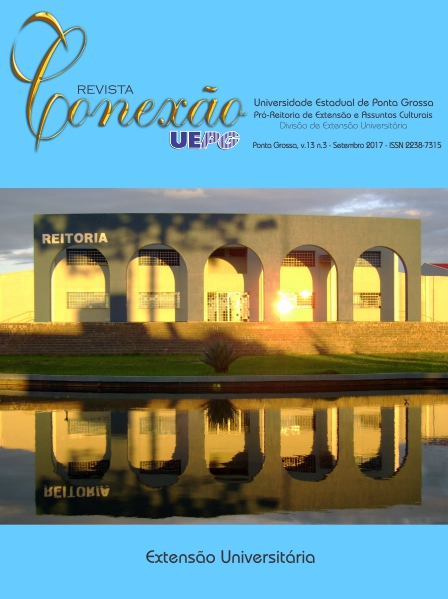POTENTIALITIES AND FRAGILITIES OF THE BRAZILIAN SCHOOL FEEDING PROGRAM - PNAE IN CANTUQUIRIGUAÇU TERRITORY (PR)
DOI:
https://doi.org/10.5212/Rev.Conexao.v.13.i3.0015Keywords:
commercialization, family farming, public policies.Abstract
This study describes the analisis of the Brazilian School Feeding Program - PNAE (Brazilian abbreviation) in Cantuquiriguaçu territory, PR, carried out by the “Outreach Center of Territorial Development - NEDET (Brazilian abbreviation)”. In order to to elucidate the operationalization of this program, it was conducted a quantitative and qualitative data collection in the municipal education departaments of the territory and in local sources of federal government. It was also conducted interviews with the key actors of this process (farmers, nutritionists, school lunch cook, municipal autorities). It identified difficulties in purchasing 30% of the products produced by family farming in some municipalities. However, through a historical analysis, it is noticed a gradual improvement in the operationalization of it. It is concluded that the acceptance of products from family farming is important, but he lack of training for cooksas well as the lack of productive and technical assistance limit its effectiveness. It is also concluded that the small number of farmers accessing the program may cause difficulties in implementing sustainable rural development at the local level.
Downloads
Downloads
Published
Issue
Section
License
a) Authors retain copyright and grant the journal right of first publication with the work simultaneously licensed under a Creative Commons Attribution License that allows others to share the work with an acknowledgement of the work's authorship and initial publication in this journal.
b) By submitting an article to the Revista Conexão UEPG and having it approved, the authors agree to assign, without compensation, the following rights to the Journal: the rights of first publication and the rights to redistribute the article and its metadata to the indexing and reference services that the editors deem appropriate.
c) Readers are free to transfer, print out and use the articles published in the Journal, as long as there is always explicit mention to the author(s) and to the Revista Conexão UEPG and as long as there is no alteration of the original work. Any other use of the texts needs to be approved by the author(s) and by the Journal.






